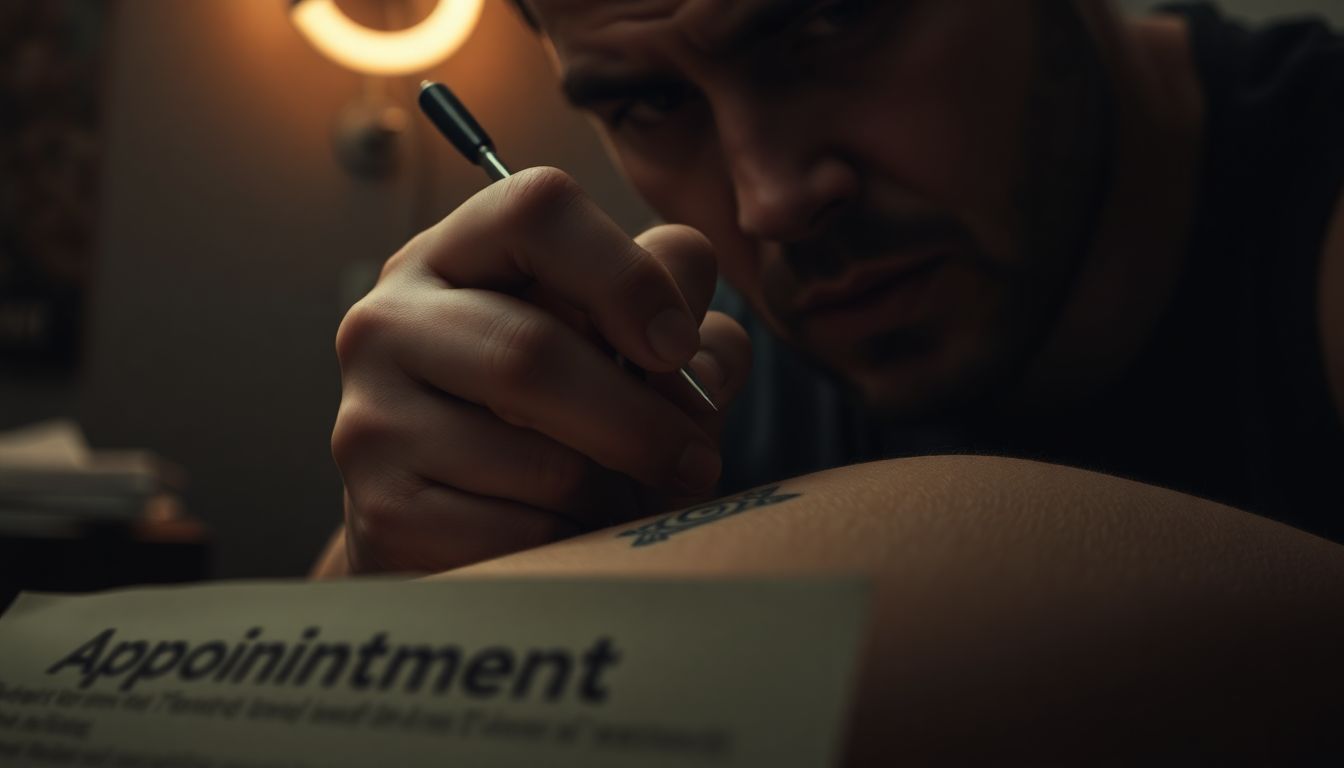
Many tattoo artists have stories about canceled appointments. One of my favorites involves a client who thought they could just walk in asking for a large, intricate design with little notice. This experience highlighted how crucial it is to have an open dialogue leading up to the appointment. Understanding what makes an artist cancel will not just save you time, but also enhance the overall tattoo experience. Respect and professionalism go both ways in the tattoo world. Here are four major reasons that could lead to an appointment cancellation.
Unrealistic Expectations & Poor Communication
Unrealistic Timeframes
Tattooing is an art form that takes time. Large-scale tattoos require detailed planning and execution. On average, a small tattoo may take around one to two hours, while a full sleeve can take 6-10 hours or more, often spread over multiple sessions. If clients expect to finish a complex design in one sitting, that’s a recipe for disappointment and cancellation.
Lack of Clear Communication
Clear communication about design preferences is vital. A lot can go wrong if a client isn't specific about size, placement, and overall design. For instance, if someone comes in thinking they want a dragon on their back but has not fully defined the concept, we risk misalignment. Miscommunication not only wastes time but could lead to cancellations if the client feels the design doesn’t meet their expectations.
Last-Minute Changes
Making significant changes right before the appointment can be a logistical nightmare. Last-minute tweaks may compromise the artwork’s integrity and flow. This disrupts the tattoo process, potentially leading to an appointment cancellation if the new design is too complicated for the time scheduled.
Insufficient Research & Preparation
Lack of Design Ideas
Design discussions should be a collaboration. While artists can offer professional insights, clients must come prepared with ideas. If a client shows up with no concept or preferences in mind, it becomes challenging to proceed smoothly. A good starting point for discussions could be research on different styles and placements.
Inadequate Aftercare Knowledge
Aftercare is crucial for a tattoo's healing process. Clients need to understand how to care for their new ink properly. Failure to do so can lead to infection or fading, ruining the artwork over time. According to dermatologists, proper aftercare can significantly enhance healing, which highlights the necessity for clients to come informed about aftercare protocols.
Ignoring Consultations
Consultations are there for a reason. They help both clients and artists align expectations and finalize designs. Skipping this step can lead to misunderstandings and possibly cancellations. Treat consultations as essential prep work; they set the stage for a successful tattoo experience.
Disrespectful Behavior & Unprofessional Conduct
Arriving Late or No-Showing
Arriving late or failing to show up is damaging to tattoo artists and their schedules. Small businesses often suffer due to no-shows, sometimes losing hundreds monthly. Maintaining appointment etiquette not only shows respect for the artist's time but keeps the overall schedule on track.
Inappropriate Behavior
Being rude or disruptive can ruin an atmosphere. Issues like arriving intoxicated or displaying disrespect towards studio staff are serious. Clients should treat tattoo studios like any other professional space. Remember to practice good manners and remain composed throughout the process.
Ignoring Studio Policies
Every studio has its own set of rules. Whether regarding age limits, what to wear, or other requirements, disregarding these guidelines can lead to cancellations. Familiarizing yourself with studio policies helps prevent misunderstandings and ensures a smoother experience.
Health & Safety Concerns
Undisclosed Medical Conditions
Clients must be transparent about any medical issues, including allergies and medications. This information can affect both the tattooing process and healing. A quote from a dermatologist highlights this: “Undisclosed conditions can lead to severe complications during or after the tattooing process.”
Ignoring Contraindications
Certain medical conditions deem tattooing inadvisable. For instance, conditions like diabetes can lead to infections. Tattoo artists prioritize client health, so if we sense any risk, cancellations may follow to keep everyone safe.
Unhygienic Practices
Hygiene is paramount in the tattoo industry. Both the studio and the client must maintain cleanliness before and during the tattoo session. Poor hygiene practices not only risk infection but can result in appointment cancellations.
Conclusion
Appointment cancellations can stem from unrealistic expectations, poor communication, disrespectful behavior, and health concerns. Keeping a mutual respect for each other's roles is crucial. Clients should prepare adequately and communicate openly with their tattoo artist. Let’s work together to ensure your tattoo experience is exceptional. Book wisely and show respect; this ensures everyone walks away happy.
%20(4).jpeg)